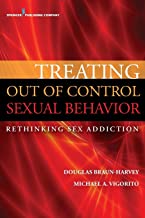 Gay Men and the Function/Purpose of Casual Hookups
Gay Men and the Function/Purpose of Casual Hookups
Casual Sex Overview
If you pay attention to how gay men have been talked about, in the past and today, there are many “criticisms” that we get; some are kind of true (being capable of being superficial), or, revoltingly, from the current crop of vile Republicans (Marjorie Taylor Greene, Lauren Boebert, Nikki Haley, Matt Gaetz, George Santos, Marco Rubio, Ted Crez, Greg Abbott, Ron DeSantis; OK, I’ll stop; we’ll be here all day with that) that we are “groomers”, once again conflating adult male consensual relationships with pedophilia, which is a very old, revolting bigot-trope that has disgustingly persistent staying power with every new generation of opportunistic homophobic oppressors. But another criticism is that we are “sexually easy” and “hook up” a lot. Maybe that’s true, but I’m not convinced it’s more true for young gay men versus young straight men, if you just look at birth control sales near college campuses or hotel noises at Spring Break.
But who is to say what “a lot” is? And, who cares? All consenting adults (and consenting adolescents, if with each other) have a right to do with their bodies what they please, especially if there is consent and other principles of sexual health that I mentioned in another blog/podcast on the Six Principles of Sexual Health as Applied to Gay Men. It bears repeating, from the LGBT+ community, the pro-choice women’s (and men’s!) communities, and others (such as those who support the legalization of recreational drugs and an end to the Drug War), that we have an inherent right to do with our bodies what we want, as long as it doesn’t harm other people (anti-vaxxers harm other people).
Background of Gay Men’s Casual Sex History
The gay male “hookup” has been a time-honored tradition “since Thespis first stepped out of the chorus,” Addison DeWitt says in the gay cult classic movie, “All About Eve.” Gay men in days gone by had codes ranging from wearing a green carnation in your lapel to asking a guy if he is “musical” to determine if he was gay (or bi) and available, at least for that moment. Most gay men, from probably late adolescence onward, become familiar with what it’s like to be sexual with another guy, even if that isn’t in the context of dating or a relationship.
The gay male stereotype, which is similar to the stereotype about men in general, is that we are all sex-crazed fiends with no capacity for interpersonal intimacy, is a misandrist notion that some gay men have adopted and internalized into their core sense of self. This, along with being called sick/bad/wrong basically since birth, and you have a formula for gay men to have a sense of shame about their bodies, their sexual identity, and their sex with other consenting partners. It has to stop.
It is rare to find gay men’s sexuality validated as such. The current Pope tries to dance a lucrative tightrope of saying gay men should be “accepted” but then turns around and denigrates our marriages and tells us that “being homosexual is not a problem, having sex is.” That is the kind of bigoted doubletalk that has people, thankfully, leaving that kind of organized religion in droves. How stupid do they think all of us are? We see right through that “pseudo-ally” virtue signaling for the oppression that it is, that still drives gay adolescents (and some adults) into low self-esteem and self-loathing at best, and suicide (by many numbers) at worst. That rhetoric also excuses, inspires, supports, and exalts those who would oppress gay men, whether that’s kicking a gay son out of the house, discriminating against us in the workplace (but being very careful to “call it” something else), banning us from donating blood (still, despite more public health moron double-talk) or committing hate crimes that break, burn, blind, disfigure, disable, or kill us. It’s all cut from the same (clerical) cloth in churches, mosques, and temples across the world.
Fighting the Heterosexist Double Standard
This begs the question: Where is the validation for gay men’s sex as such, beyond just getting that (and getting “it”) from each other? From porn? That’s it? I think we can do better. Some TV shows and movies do dignify actual sex among gay men by depicting it tastefully, on a par with how heterosexual sex is portrayed (although to a much smaller prevalence). Even in my career as a gay men’s specialist psychotherapist, coach, and AASECT Certified Sex Therapist, I still don’t see all that much validation, support, encouragement, and even exaltation of gay male sex as such. There is a dearth of gay male specialist therapists and an even bigger shortage of gay male sex therapists. And we need that validation, to feel as whole (no pun intended) as straight guys. There should be no difference in self-esteem, body self-concept, sexual acceptance, sexual confidence, sexual enjoyment, or sexual “visibility” between straight and gay men. Full equality. Anything else is “separate and unequal.”
And even if we’re not “exactly” equal – there are some straight men who would say that we gay men “get laid” in general more often than they do — there is no law saying we have to all have an equal frequency of sex. It is our adult prerogative to control (again, with the caveat of consenting adults) and with humane physical, emotional, relational, and psychological sexual health considerations.
What is the value and purpose of the gay male hookup, aka casual sex?
Is it really “meaningless,” or does it just have a special kind of meaning?
Maybe it’s not exactly “love” in the romantic relational sense, but love in a brethren, camaraderie, esprit de corps, community sense. Yo, bro, I gotcha.
Gay men’s sex in the time post-Stonewall (1969) and before AIDS (1981) was seen as a time of liberation, as an exaltation of sexual freedom as well as personal freedom, unhindered by arbitrary convention that entrapped us in the 1950’s. (There was a lot of that during this time; even straight men grew their hair long, women burned their bras, men burned their draft cards, women started formally getting more legal civil rights around banking, credit, property, medical care (birth control/abortion), and job non-discrimination laws; it was a good time.)
The gay male hookup of the freewheeling 1970s was not just a fun way to spend (most of) the weekend, it was an act of political defiance against oppression. Part of the reason the anti-gay bigot morons blamed AIDS on gay men was because they saw it as “punishment” for our “sinful” sex lives in the years before the pandemic began. And while this may be true in part just medically, the “morals” are irrelevant; everyone has the right to have as much – or as little – sex as they want. There is no “arbiter” except what’s right for you, and perhaps with a partner(s) in a monogamy agreement or ground rules agreement in Consensual Non-Monogamy (which I have a year-long continuing education training certificate in from Sexual Health Alliance).
When AIDS became tamed through the miracle of modern medicine for HIV-positive people, and PrEP protected HIV-negative people, then in the current day and age, truly “safe” sex became more popular and gay men were not quite as afraid of the customary hookup. This generation is especially “active” as evidenced not so much by bathhouses and sex clubs, but by warehouse play parties, group scenes, dance parties, and gay men’s apps .
Gay men get little validation for the idea of having sex just because it’s fun. It can be a profound expression of intimacy in the context of a long-term committed relationship, and that can be intimate and poignant, but it doesn’t have to be. Sex can be used to relieve boredom, have companionship, relate to your community brethren, soothe stress, and contribute to long-term prostate health, reducing cancer risk.
While some single gay men crave sex in the most intimate context of lovemaking in a serious relationship, that situation takes time and effort, and more than a little serendipity and luck. In the meantime, while waiting for “Mr. Right,” “Mr. Right Now” might suffice, especially if you look at a gay man’s need for sex being akin to his being hungry for food, thirsty (in the actual drinking sense, not just desperately horny), and protection from the elements. Recreational sex has been labeled as “sinful,” “sex addiction,” “inappropriate behavior,” “risk to the immortal soul,” “unhealthy,” and so on. Baloney. If straight people can get their sex – not just their relationships, but their sex – relentlessly validated in every movie, TV show, billboard, commercial, magazine, etc., then we can, too.
Recreational sex can have its place even in relationships, if they are Consensual Non-Monogamous ones. Just like you really might like your own, or your partner’s cooking at home, you both might want to “eat out” once in a while, and it might not always be the same cuisine. In CNM relationships, there is a well-thought-out, discussed, compassionately negotiated design for a function and purpose to outside recreational sex, such as for variety of types, sensory stimulation, role exploration, or a connection that is perhaps somewhere in-between fraternal and romantic with your fellow community members.
Sexual variety attained through whatever hookup frequency feels right for you can enhance your sense of personal growth, challenge you to experience new things (including things that might intrigue, embarrass, or scare you a little bit). Casual sex can sometimes be a “test” of whether you have erectile dysfunction in all settings, or “just” with your partner – which might indicate that the etiology of your ED is more relational or psychological about your relationship dynamics – including unconscious, unresolved conflicts or resentments with your partner (as opposed to medical etiology like blood flow, hormone imbalance, or stamina).
For single gay men, casual sex can be part of the dating process, or just building a history of a sexual resume, that can help a guy “rehearse” for life in a relationship with often (but not always) more frequent sex with a partner you live with. You might want to drive around the block before you pick the house you want to live in.
Casual hookups can have their disappointments, sure. I hear complaints from gay male clients about visiting a guy’s house only to find he really doesn’t look like his online photos, or there is a big body change (gaining or losing to much weight), or the photo is outdated. Guys can feel disappointed in hookups if they start out thinking they want a hookup, when what they really want is a steady partner (when hookups are generally much easier to find than partners/spouses). Guys can spend the night together, only to want to be done with it by the time morning comes (there is a meme about waking up your hookup and saying, “Your Uber is here.”) Several guys only recently have mentioned hookups where they found the guy just “weird,” which can mean so many things, but it encapsulates a general dissatisfaction. That’s the thing with hookups; they can be fun, but they can also be exercises in frustration. Maybe the “game” is not knowing up front which it’s going to turn out to be.
 Casual hookups always need to give a nod to what the Six Principles of Sexual Health call attention and care for the prevention of unwanted pregnancy (such as a cis gay man with a trans gay man), or prevention of STI’s, with HIV being the biggest consideration, but also a commitment to a regular testing schedule for syphilis, chlamydia, gonorrhea, or others, not only to test/treat yourself, but your immediate past/present/future partners, and for more global public health considerations as well (such as the recent global Monkey Pox disease) (the Six Principles of Sexual Health are discussed brilliantly in Doug Braun-Harvey and Michael Vigorito’s book, Treating Out of Control Sexual Behavior: Rethinking Sex Addiction). I think part of the reason why Monkey Pox wasn’t worse was because gay men were already established with medical providers either through treatment for HIV, or for PrEP; both of those put most gay men in front a medical doctor at fairly regular intervals, which we might find has positive implications for other health risks as well, like diabetes, heart disease, cancer, or stroke prevention. We are “under care”, when before, some of us who are HIV-negative might go months or years without seeing a doctor. In general, gay men are very sophisticated medical patients, knowing about many terms and names of prescription drugs and their uses. We’re generally not afraid to ask for Xanax when Gurlfriend gets on your last nerve, or Ambien to sleep on a trans-Atlantic flight to a world Pride or cruise destination.
Casual hookups always need to give a nod to what the Six Principles of Sexual Health call attention and care for the prevention of unwanted pregnancy (such as a cis gay man with a trans gay man), or prevention of STI’s, with HIV being the biggest consideration, but also a commitment to a regular testing schedule for syphilis, chlamydia, gonorrhea, or others, not only to test/treat yourself, but your immediate past/present/future partners, and for more global public health considerations as well (such as the recent global Monkey Pox disease) (the Six Principles of Sexual Health are discussed brilliantly in Doug Braun-Harvey and Michael Vigorito’s book, Treating Out of Control Sexual Behavior: Rethinking Sex Addiction). I think part of the reason why Monkey Pox wasn’t worse was because gay men were already established with medical providers either through treatment for HIV, or for PrEP; both of those put most gay men in front a medical doctor at fairly regular intervals, which we might find has positive implications for other health risks as well, like diabetes, heart disease, cancer, or stroke prevention. We are “under care”, when before, some of us who are HIV-negative might go months or years without seeing a doctor. In general, gay men are very sophisticated medical patients, knowing about many terms and names of prescription drugs and their uses. We’re generally not afraid to ask for Xanax when Gurlfriend gets on your last nerve, or Ambien to sleep on a trans-Atlantic flight to a world Pride or cruise destination.
A person’s sexuality – for everyone, but we are discussing specifically gay men here – is theirs to control, to keep, to honor, to celebrate. It’s no one else’s business, despite relentless (and increasing!) political attacks from Republicans in the U.S. and “conservatives” in other countries. A client of mine who practiced Wicca shared with me one of their adages, “If it harm none, do what thou wilt.” That sounds pretty “magick” to me.
How do you feel about your own sexuality? Do you embrace and enjoy it? Or do you struggle or battle with it? For more specific help, please consider a consultation with me on this. I also provide psychotherapy for more common challenges such as depression, anxiety, relationship ambivalence, breakups, health concerns, grief/bereavement, and very often adult ADD, OCD, and job/career stress concerns. I offer psychotherapy services for people in California, and life/career/relationship/executive coaching for people in other states or countries. We can discuss some important differences between those two when we talk. Feel free to call or text 310-339-5778, or email Ken@GayTherapyLA.com for more information, or to schedule your own appointment.

Ken Howard, LCSW, CST is the most experienced gay men’s specialist therapist in the United States today. With over 31 years experience, he is also a life/career/relationship coach, retired faculty of the USC School of Social Work, author, activist, and composer (“On the Boulevard – Original Cast Concept Album”). He lives in West Hollywood, CA with his husband of over 20 years.


